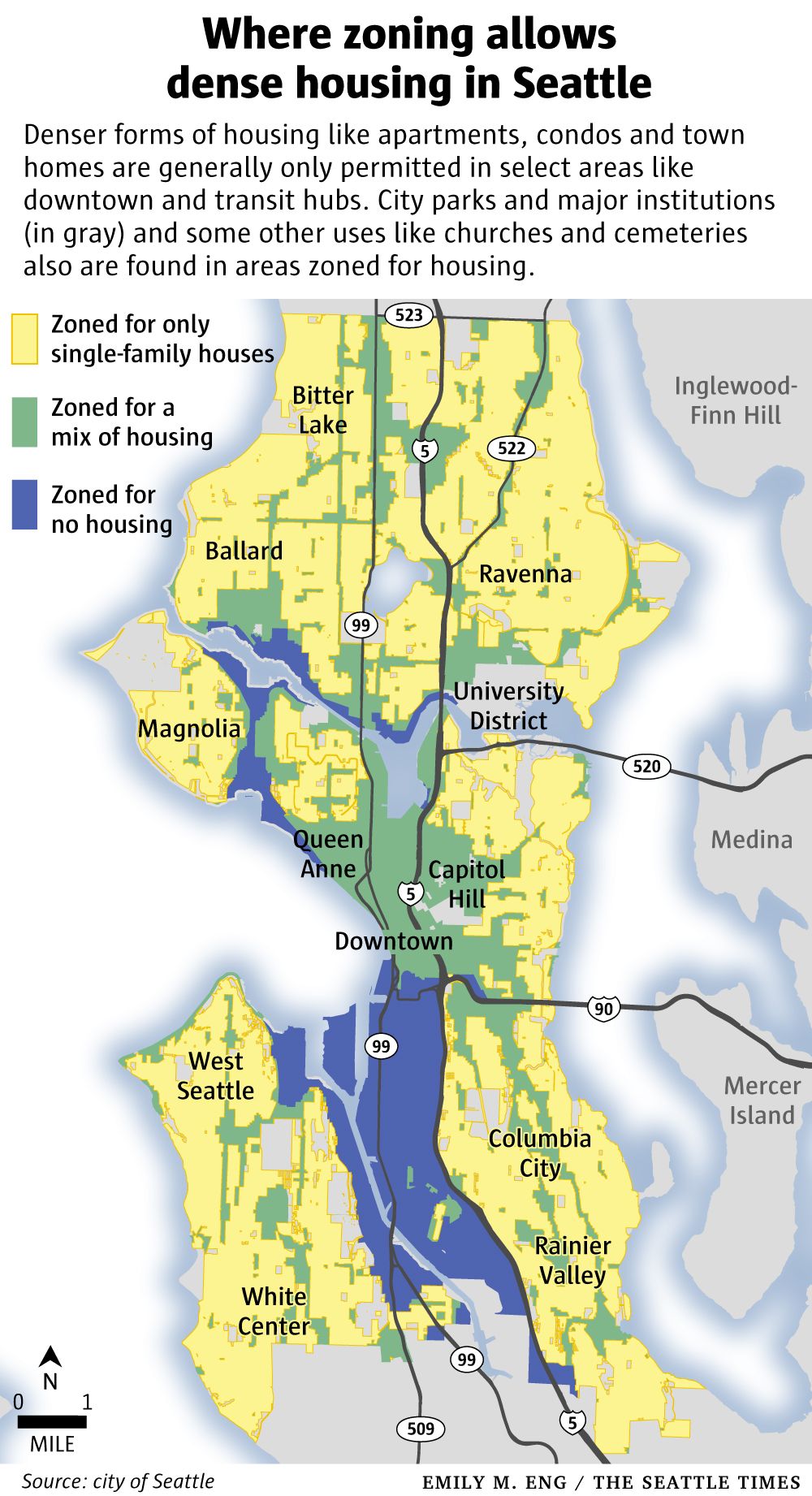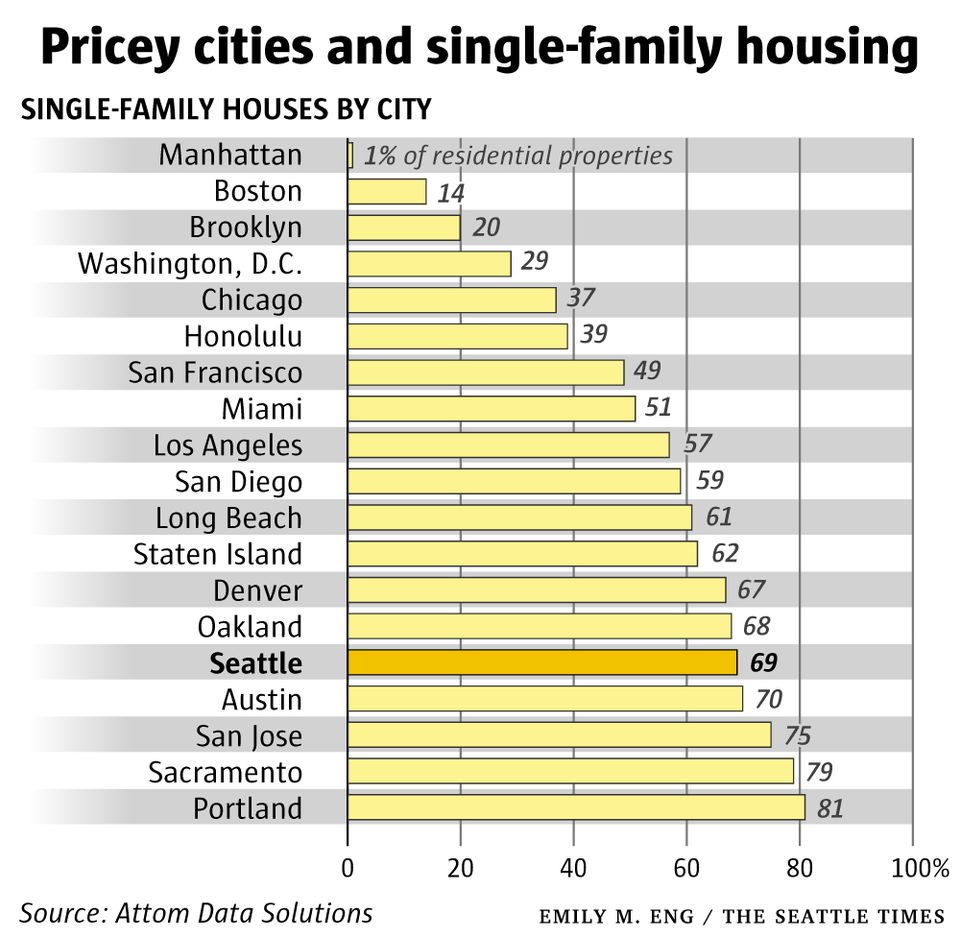You are using an out of date browser. It may not display this or other websites correctly.
You should upgrade or use an alternative browser.
You should upgrade or use an alternative browser.
Seattle's Crusade Against "The Rich": $47 million Head Tax is repealed a month after it was signed
- Thread starter Arkain2K
- Start date
- Joined
- Jun 30, 2015
- Messages
- 16,562
- Reaction score
- 23,459
Obligation isn't responsibility.
No it isn't, but your intent is basically the same. They're not obliged, nor responsible to fix the homeless problem. Grown men and women are responsible for their living situations.
- Joined
- Nov 12, 2009
- Messages
- 76,917
- Reaction score
- 17,505
Probably paying the last mayor's child sex lawyer costs.Can anyone tell me where all the money they've taken for the homeless has even gone? They've got literally nothing to show for it.
- Joined
- Jan 18, 2012
- Messages
- 10,665
- Reaction score
- 15,820
And the jobs and tax revenue come and go with them.The state is going to exist with or without them. It's a place and a system.
Companies come and go.
- Joined
- Sep 18, 2013
- Messages
- 55,861
- Reaction score
- 27,042
And the jobs and tax revenue come and go with them.
I don't think that's a major concern in a place like Seattle.
Someone will always move to fill a market there.
Coddling?
I think that's quite the opposite of what happens to homeless people.
Then what do you call taxing corporations for funds to help the homeless?

- Joined
- Nov 12, 2009
- Messages
- 76,917
- Reaction score
- 17,505
IDK about that. MS is pretty well ingrained/stuck there but Google, Amazon, Nintendo USA all could leave if they wanted and it'd kill the job market in King/Pierce/Snohomish county.I don't think that's a major concern in a place like Seattle.
Someone will always move to fill a market there.
- Joined
- Sep 18, 2013
- Messages
- 55,861
- Reaction score
- 27,042
Then what do you call taxing corporations for funds to help the homeless?

For just a few weeks, lol?
You expect results overnight for a problem that has been brewing for decades?
- Joined
- Jan 18, 2012
- Messages
- 10,665
- Reaction score
- 15,820
That's why states and city's engage in property and tax break wars to get corporations to move to the area. The municipalities that host large corporate and production facilities benefit greatly from their presence, not only in taxing that particular business, but their suppliers, transporters, employees etc. The tax revenue stream is long and deep.I don't think that's a major concern in a place like Seattle.
Someone will always move to fill a market there.
- Joined
- Aug 18, 2010
- Messages
- 37,262
- Reaction score
- 1,355
I lived in Lynnwood for 8th-10th grade. The amount of friends I had that had parents working for MS/Boeing/Nintendo was like staggeringIDK about that. MS is pretty well ingrained/stuck there but Google, Amazon, Nintendo USA all could leave if they wanted and it'd kill the job market in King/Pierce/Snohomish county.
- Joined
- Sep 18, 2013
- Messages
- 55,861
- Reaction score
- 27,042
Don’t blame me for socialism failing yet again...
Socialism?
People just don't like paying taxes even when its in their interest. Has nothing to do with socialism lol.
What means of production was siezed here bob?
- Joined
- Dec 6, 2010
- Messages
- 33,422
- Reaction score
- 5,683
From my limited reading, Seattle (like many other cities) has an affordable housing shortage that is basically rooted in the reality that high income earners have purchased the majority of the homes near the city's ideal locations and that competition for those homes has driven up the overall prices within the city. The cities lack the ability, for a variety of different reasons, to construct new housing that low income residents can afford, either for purchase or for rent. Additionally, the public transportation system is not robust enough to efficiently move people in and out of the central city locations to the affordable exurbs and suburbs (which are not the same as the more expensive exurbs or suburbs).
Here's the reason why it's next to impossible to build affordable high-rise residential condos in Seattle: 70% of the land mass in the city is zoned for single-family homes.
The housing crisis in Seattle is the fault of its government. The city has been on a nonstop rampage to declare itself the most progressive society in the world for the last few years. During its crusade that is killing jobs and making life miserable, city elected officials have enacted rules and regulations that make it almost impossible to build housing there.
John Stossel (formerly of Fox Business) and Maxim Lott recently wrote in Reason Magazine that Seattle’s building code is 745 pages long. The residential building code is another 685 pages.
Jeff Pelletier, of Board and Vellum Architects, points to the permits as one of the main drivers in the rise of housing costs in Seattle stating, “while there is a lot of benefit to a thorough review of your project, we are seeing tremendous cost and schedule increases from local building departments.”
One way to help solve the housing problem would be to build mid- and high-rise condominiums. On a plot of land that usually accommodates three to four single family homes, the city could allow developers to build projects that house more than 100 people, getting much more bang for the buck in land use.
But no, this is Seattle. Strict zoning laws have only given multi-family and commercial and mixed-use areas one-third of the land designated for residential use, driving up the price of single-family homes.
http://www.foxnews.com/opinion/2018...isis-now-its-trying-to-make-it-worse.amp.html
Last edited:
- Joined
- Dec 6, 2010
- Messages
- 33,422
- Reaction score
- 5,683
Rapidly growing Seattle constrains new housing through widespread single-family zoning
By Mike Rosenberg | May 3, 2018

By Mike Rosenberg | May 3, 2018

In Seattle, 69 percent of residential plots of land are occupied by single-family houses, according to Attom Data Solutions, which has an extensive nationwide property database and ran the numbers for me. That’s about average when looking at the 50 biggest cities in the country. But compared to other peer cities with expensive housing, Seattle generally devotes a lot more of its housing to single-family homes:

Virtually all of Seattle's new housing has been crammed into the few parts of town where dense housing like apartment towers are legal. The rest of Seattle is made up of pricey single-family homes.
According to the city’s comprehensive plan update in 2015, single-family homes make up about 19,000 acres of current land use, while the two types of areas that allow denser housing – multi-family and commercial/mixed-use areas – combine for about 6,200 acres.
Looking at it yet another way: Single-family housing makes up 49 percent of all developable land mass in the city, while 8 percent are multi-family buildings and another 8 percent are commercial and mixed-use structures. (The rest? Another 11 percent are major institutions and utilities; 9 percent are parks and open space; 9 percent is vacant and 5 percent is industrial.)
Read the rest of the analysis at:
https://www.seattletimes.com/busine...h-most-new-housing-restricted-to-a-few-areas/
- Joined
- Dec 20, 2010
- Messages
- 30,799
- Reaction score
- 7,619
The DEMs better learn from this. They need to get out of bed with the crazy leftists because we are the best country in world history. Period.
Theoretical question: If the vast majority of the residents of a city voted in a ballot initiative to do "X" would you consider it a problem if the much smaller faction, those who opposed "X", were able to get the city to instead do their bidding?
And would your answer depend on whether or not you personally supported or opposed "X"?
- Joined
- Aug 18, 2009
- Messages
- 47,419
- Reaction score
- 20,821
Here's the reason why it's next to impossible to build affordable high-rise residential condos in Seattle: 70% of the land mass in the city is zoned for single-family homes.
http://www.foxnews.com/opinion/2018...isis-now-its-trying-to-make-it-worse.amp.html
I'm aware of that. But to lay that solely at the feet of the government isn't completely fair either. They have been trying to rezone for a while now. This is an example of those efforts: https://seattle.curbed.com/2017/11/9/16629248/seattle-hala-mha-upzone-plan
But they tried this back in 2015 also and got major pushback so they dropped it. And the pushback came from those residents who live in single family homes who don't want to see their lifestyle changed because of new multifamily additions altering the character of their neighborhoods.
And while I don't have the data here, I'd suspect that pushback came from the high earners in the city, who already have purchased their single family homes, since the majority of Seattle residents apparently want more multifamily zoning. And since most of the cityy makes less than $50k, I'm going to step out on a branch and guess that those earners are not already homeowners.
So, in many ways, the big corporations of Seattle share culpability in the ongoing and exacerbation of this problem. Their employees can afford the higher priced homes and rents. There are more of them than there is supply of housing. So they push up costs. However, because they've paid for their single family homes or are working towards finally acquiring one, they also don't support significant changes in the zoning rules that would tear down single family homes for smaller condo and other multi-family options.
From that perspective, it's perfectly reasonable to shift some of the costs of dealing with the ultimate downstream effects back onto these corporations.
Random aside, I was in a meeting today with some of my city's movers and shakers (I neither move nor shake at that level but it's nice to get invited) and this issue of affordable housing and the effect on homelessness reared it's ugly head. The difference is that my city was originally planned around significant multifamily housing and most of our zoning fights are about converting that to single family residences since it fits the population spread better. But that's a far easier problem to solve than going the other way.
- Joined
- Dec 6, 2010
- Messages
- 33,422
- Reaction score
- 5,683
I'm aware of that. But to lay that solely at the feet of the government isn't completely fair either. They have been trying to rezone for a while now. This is an example of those efforts: https://seattle.curbed.com/2017/11/9/16629248/seattle-hala-mha-upzone-plan
But they tried this back in 2015 also and got major pushback so they dropped it. And the pushback came from those residents who live in single family homes who don't want to see their lifestyle changed because of new multifamily additions altering the character of their neighborhoods.
And while I don't have the data here, I'd suspect that pushback came from the high earners in the city, who already have purchased their single family homes, since the majority of Seattle residents apparently want more multifamily zoning. And since most of the cityy makes less than $50k, I'm going to step out on a branch and guess that those earners are not already homeowners.
So, in many ways, the big corporations of Seattle share culpability in the ongoing and exacerbation of this problem. Their employees can afford the higher priced homes and rents. There are more of them than there is supply of housing. So they push up costs. However, because they've paid for their single family homes or are working towards finally acquiring one, they also don't support significant changes in the zoning rules that would tear down single family homes for smaller condo and other multi-family options.
From that perspective, it's perfectly reasonable to shift some of the costs of dealing with the ultimate downstream effects back onto these corporations.
Random aside, I was in a meeting today with some of my city's movers and shakers (I neither move nor shake at that level but it's nice to get invited) and this issue of affordable housing and the effect on homelessness reared it's ugly head. The difference is that my city was originally planned around significant multifamily housing and most of our zoning fights are about converting that to single family residences since it fits the population spread better. But that's a far easier problem to solve than going the other way.
The city can start by proposing to rezone the neighborhoods where the Socialists are from. Surely they're not hypocrites and will be happy to see their single-family zones converted into multi-family zones and became the solution of the housing crisis that they're looking for? I'm sure big businesses like Amazon would gladly make voluntary donations towards those project too!
- Joined
- Jul 20, 2015
- Messages
- 8,879
- Reaction score
- 0
They should just take homeless people without families and relocate them to Slab City.
- Joined
- Aug 27, 2006
- Messages
- 12,524
- Reaction score
- 303
Yeah, that's not happening.
Here's a glimpse on how much Seattle residents trust their City Council to spend their tax money in a recent Town Hall open-mic:
Seattle spent $60 Millions on homelessness last year. This year that number is increasing to $63 Millions. Apparently it does fuck all, especially to the drug issue that no one on the Council want to talk about, so now they want big employers like Amazon to pay more so they can spend more. Where did all those millions go? No one knows, cause the City refuse to provide an itemized chart of how they're spending it.
No wonder the Head Tax idea is failing spectacularly, even after they tried to bulldoze it through.
seattle spent almost 200 million on homeless last year (includes government and private funding) and the situation isn't any better..
http://q13fox.com/2018/05/11/after-...on-problem-why-is-homelessness-getting-worse/


